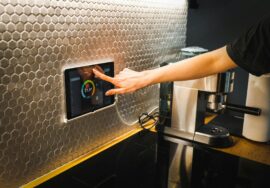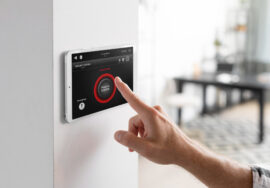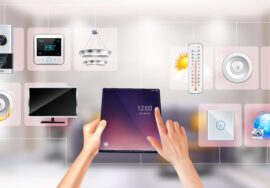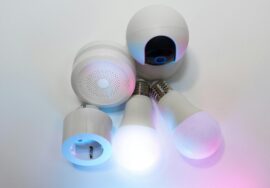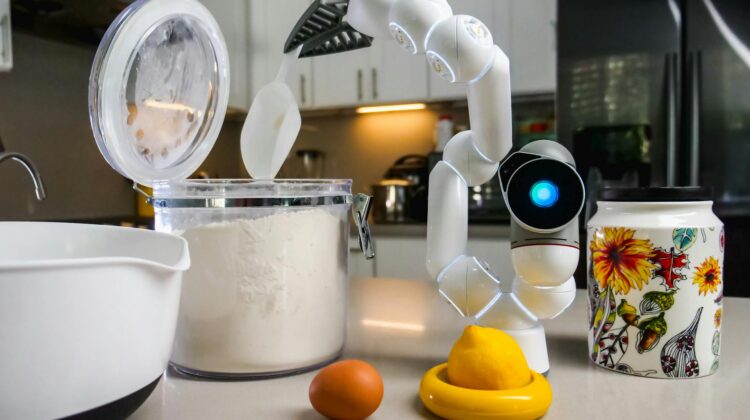
AI-Powered Home Assistants: Which One Reigns Supreme in 2025?
AI-powered home assistants have moved from being novelty gadgets to becoming essential household tools. In 2025, they are the backbone of the Smart Home & Automation industry, integrating voice commands, artificial intelligence, and smart device control into a single, responsive hub. Whether you’re managing your schedule, controlling your lights, or automating your security system, these assistants are designed to make life easier and more efficient. But with so many options available, which one truly leads the market this year? This guide explores the top contenders and helps you decide which AI-powered assistant is right for your home.
Why AI-Powered Home Assistants Are More Important Than Ever
The modern home is packed with smart devices, from thermostats and security cameras to connected kitchen appliances. An AI-powered home assistant serves as the central command system, allowing you to control everything with simple voice commands or through intuitive apps. They can answer questions, provide personalized recommendations, and even learn your routines over time. With the Smart Home & Automation sector advancing rapidly, today’s assistants are more capable, secure, and user-friendly than ever before.
Key Features to Look for in a Home Assistant
Before choosing a home assistant, consider the following important features:
- Voice Recognition Accuracy: The ability to understand different accents, speech patterns, and languages.
- Smart Device Compatibility: Broad integration with lights, plugs, locks, appliances, and security systems.
- AI Learning Capabilities: Personalized responses based on user behavior and preferences.
- Privacy and Security: Data encryption, offline mode, and clear privacy settings.
- Multi-User Support: Recognizing and customizing responses for different family members.
- Third-Party App Integration: Support for streaming services, productivity apps, and automation routines.
Top AI-Powered Home Assistants in 2025
Amazon Alexa (Echo Series)
Amazon’s Alexa remains one of the most versatile AI assistants on the market. Available through Echo smart speakers and displays, Alexa supports thousands of smart devices and has the most extensive library of “Skills” to expand functionality. In 2025, Alexa offers improved natural language processing, allowing for more fluid conversations. The new Alexa Guard+ feature integrates with home security systems, while Alexa Routines let users create automated actions for lighting, temperature, and entertainment.
Google Assistant (Nest Hub Series)
Google Assistant continues to excel in answering questions and providing search-based information thanks to Google’s powerful AI. Integrated into the Nest Hub series and compatible smart speakers, it offers seamless control of smart devices through Google Home. In 2025, its improved contextual awareness allows follow-up questions without repeating the wake word. For users heavily invested in the Google ecosystem, it’s a natural choice in the Smart Home & Automation market.
Apple Siri (HomePod Series)
Apple’s Siri has steadily improved in recent years, particularly with the release of the latest HomePod and HomePod mini. Siri integrates perfectly with Apple’s HomeKit platform, offering secure, encrypted control over compatible smart devices. In 2025, Siri’s on-device processing boosts speed and privacy while new automation options allow for deeper integration with iOS and macOS. It’s the go-to assistant for Apple ecosystem users.
Samsung Bixby (SmartThings Hub Integration)
Samsung’s Bixby has found its niche in SmartThings-powered homes. It allows for deep integration with Samsung appliances, TVs, and mobile devices. In 2025, Bixby features upgraded AI that proactively suggests actions, such as starting the washing machine when energy costs are lower. For Samsung-centric households, it’s an efficient choice.
Microsoft Copilot Home
New in 2025, Microsoft Copilot Home brings the company’s AI expertise into the Smart Home & Automation space. Integrated with Windows devices and Xbox consoles, Copilot Home offers productivity-focused features alongside standard smart home controls. It’s ideal for users who want their home assistant to also manage work-related tasks.
Budget-Friendly AI Home Assistants
For those seeking functionality at a lower cost, budget-friendly options like the Echo Dot (5th Gen) and Google Nest Mini provide excellent smart home control without the premium price tag. They may lack large displays or advanced audio, but they still integrate with a wide range of devices.
Emerging Trends in AI-Powered Home Assistants for 2025
Several key trends are shaping the market this year:
- Conversational AI Improvements: Assistants can handle multi-step tasks in a single command.
- Local Processing: Reduced reliance on cloud servers for faster and more secure responses.
- Multi-Assistant Homes: The Matter protocol allows different assistants to coexist and control the same devices.
- Emotion Recognition: AI can detect tone and adjust responses for a more human-like interaction.
- Sustainability Integration: Home assistants now suggest ways to reduce energy consumption and lower utility bills.
How to Choose the Right AI Home Assistant for Your Needs
Your choice will depend largely on your existing devices and preferred ecosystem:
- For Google Users: Google Assistant is the most natural fit.
- For Apple Ecosystem Users: Siri and HomeKit offer unmatched security and iOS integration.
- For Versatility and Device Compatibility: Amazon Alexa leads in third-party integrations.
- For Samsung Appliance Owners: Bixby with SmartThings is a seamless solution.
- For Productivity-Focused Users: Microsoft Copilot Home offers work and lifestyle integration.
Why AI Home Assistants Are a Prime Affiliate Opportunity
From an affiliate marketing perspective, AI-powered home assistants are high-demand products in the Smart Home & Automation category. They are often the gateway device that leads consumers to purchase additional compatible products such as smart lights, cameras, and appliances. This opens opportunities for upselling and cross-selling, leading to higher commission potential.
Final Verdict: Which One Reigns Supreme?
There’s no single winner for every user, but in terms of overall capability, Amazon Alexa still holds the crown in 2025 thanks to its unmatched compatibility, large skill library, and robust automation features. Google Assistant follows closely for its search and contextual capabilities, while Apple Siri remains the most secure and privacy-conscious option. Samsung Bixby and Microsoft Copilot Home round out the list with strong niche appeal. Ultimately, the best AI-powered home assistant for you depends on your ecosystem, priorities, and how you want to integrate it into your daily life.



